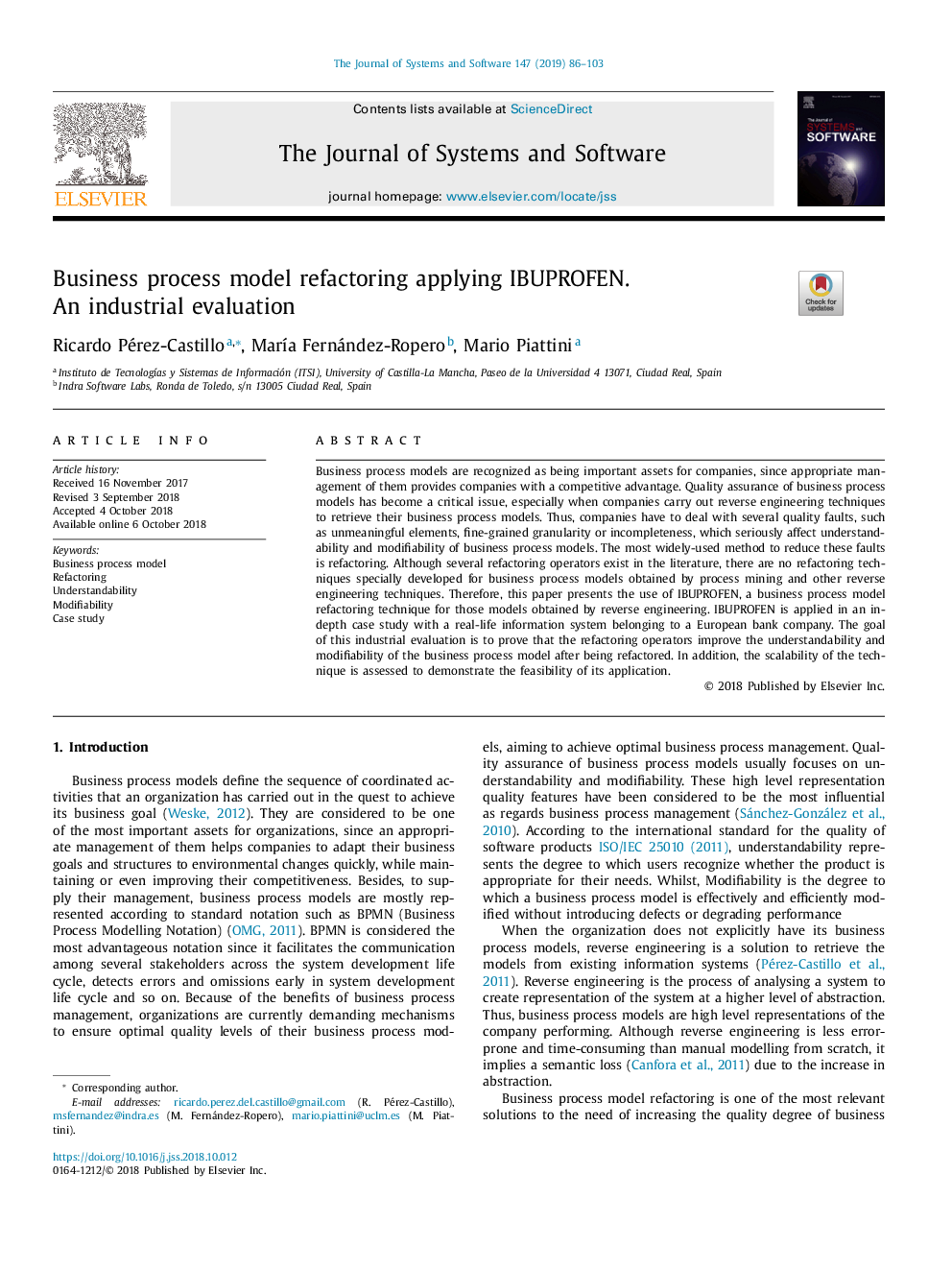| Article ID | Journal | Published Year | Pages | File Type |
|---|---|---|---|---|
| 11009317 | Journal of Systems and Software | 2019 | 18 Pages |
Abstract
Business process models are recognized as being important assets for companies, since appropriate management of them provides companies with a competitive advantage. Quality assurance of business process models has become a critical issue, especially when companies carry out reverse engineering techniques to retrieve their business process models. Thus, companies have to deal with several quality faults, such as unmeaningful elements, fine-grained granularity or incompleteness, which seriously affect understandability and modifiability of business process models. The most widely-used method to reduce these faults is refactoring. Although several refactoring operators exist in the literature, there are no refactoring techniques specially developed for business process models obtained by process mining and other reverse engineering techniques. Therefore, this paper presents the use of IBUPROFEN, a business process model refactoring technique for those models obtained by reverse engineering. IBUPROFEN is applied in an in-depth case study with a real-life information system belonging to a European bank company. The goal of this industrial evaluation is to prove that the refactoring operators improve the understandability and modifiability of the business process model after being refactored. In addition, the scalability of the technique is assessed to demonstrate the feasibility of its application.
Related Topics
Physical Sciences and Engineering
Computer Science
Computer Networks and Communications
Authors
Ricardo Pérez-Castillo, MarÃa Fernández-Ropero, Mario Piattini,
